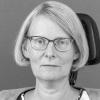Senior onderzoeker Zorgstelsel en Sturing
Publicatie
Incomes of general practitioners 1975-2000: a study in eight European countries.
Kroneman, M., Zee, J. van der, Groot, W. Incomes of general practitioners 1975-2000: a study in eight European countries. European Journal of Public Health: 2007, 17(suppl. 2), p. 107. Abstract. 15th Annual EUPHA Meeting: "The future of public health in the Unified Europe", Helsinki, 11-13 oktober 2007.
Lees online
Background: This study aims to gain insight in the development in GP income over time and internationally in a comparable way. The study is an extension of the work of Delnoij, who studied the time period 1970–90 in five-year intervals. We added the time period 1995–2005. The research questions that will be answered in this paper are: (1) How is the development in GP income over time in several European countries? (2) To what extent do remuneration system, supply of GPs and gate-keeping contribute to the income situation of GPs? and (3) Can differences in GP income be explained by differences in workload? Methods: We collected data for Belgium, Denmark, Germany, France, The Netherlands, Sweden and the UK. The information on the remuneration situation of GPs, we first consulted existing written sources (e.g. the European Observatory on Health Care Systems) and websites. When the data were either not available or language problems prevented interpretation, we consulted country experts, which we sent a tailor-made questionnaire. The data for the years 1995 and 2000 were collected in 2004–05. The data for 2005 in 2006–07. Results: The ranking of the countries in the period 1970–90 was relatively constant, with The Netherlands and Germany in a top position and Belgium, Finland and Sweden at the bottom end. In the period 1995–2005, the situation changed significantly: Denmark and the UK moved to the top end and the relative difference between the top end and bottom end (Belgium) increased largely. Practice costs (in 2000) vary from 29% to 65% of the gross income. In Belgium and The Netherlands, the largest share is found, in UK the lowest. In absolute terms (pppUS$), Germany and The Netherlands have the highest practice costs, Belgium, France and UK the lowest. The market position of GPs (independent or in salaried services; gate-keeper or equal accessible compared with medical specialists) did not influence on the financial position of the GPs in the countries in this study. The density of GPs had no relationship with income per year or per patient. However, in countries with relative large numbers of GPs, the income per hour was lower. (Results are preliminary). Conclusions: Substantial differences in income of GPs exist among the countries included in this study. An important finding is that relating income to workload will result in another ranking of countries compared to yearly income. The health care system characteristics in this study: remuneration system and gatekeeping versus direct access to medical specialists appeared to have no influence on the income of GPs. The larger the supply of GPs in a country, the lower the income per hour: GPs have to work more hours when there are less patients per GP available to obtain a comparable level of yearly income. (aut. ref.)
Background: This study aims to gain insight in the development in GP income over time and internationally in a comparable way. The study is an extension of the work of Delnoij, who studied the time period 1970–90 in five-year intervals. We added the time period 1995–2005. The research questions that will be answered in this paper are: (1) How is the development in GP income over time in several European countries? (2) To what extent do remuneration system, supply of GPs and gate-keeping contribute to the income situation of GPs? and (3) Can differences in GP income be explained by differences in workload? Methods: We collected data for Belgium, Denmark, Germany, France, The Netherlands, Sweden and the UK. The information on the remuneration situation of GPs, we first consulted existing written sources (e.g. the European Observatory on Health Care Systems) and websites. When the data were either not available or language problems prevented interpretation, we consulted country experts, which we sent a tailor-made questionnaire. The data for the years 1995 and 2000 were collected in 2004–05. The data for 2005 in 2006–07. Results: The ranking of the countries in the period 1970–90 was relatively constant, with The Netherlands and Germany in a top position and Belgium, Finland and Sweden at the bottom end. In the period 1995–2005, the situation changed significantly: Denmark and the UK moved to the top end and the relative difference between the top end and bottom end (Belgium) increased largely. Practice costs (in 2000) vary from 29% to 65% of the gross income. In Belgium and The Netherlands, the largest share is found, in UK the lowest. In absolute terms (pppUS$), Germany and The Netherlands have the highest practice costs, Belgium, France and UK the lowest. The market position of GPs (independent or in salaried services; gate-keeper or equal accessible compared with medical specialists) did not influence on the financial position of the GPs in the countries in this study. The density of GPs had no relationship with income per year or per patient. However, in countries with relative large numbers of GPs, the income per hour was lower. (Results are preliminary). Conclusions: Substantial differences in income of GPs exist among the countries included in this study. An important finding is that relating income to workload will result in another ranking of countries compared to yearly income. The health care system characteristics in this study: remuneration system and gatekeeping versus direct access to medical specialists appeared to have no influence on the income of GPs. The larger the supply of GPs in a country, the lower the income per hour: GPs have to work more hours when there are less patients per GP available to obtain a comparable level of yearly income. (aut. ref.)

